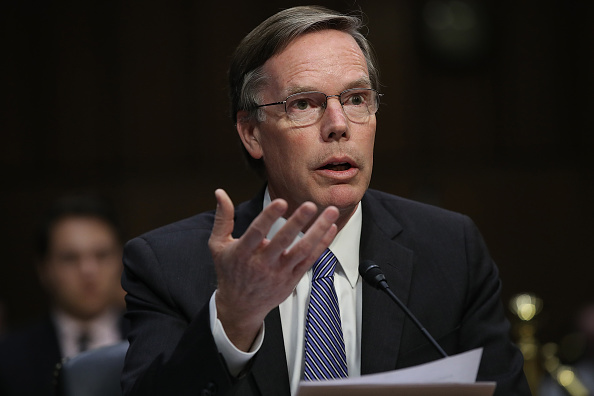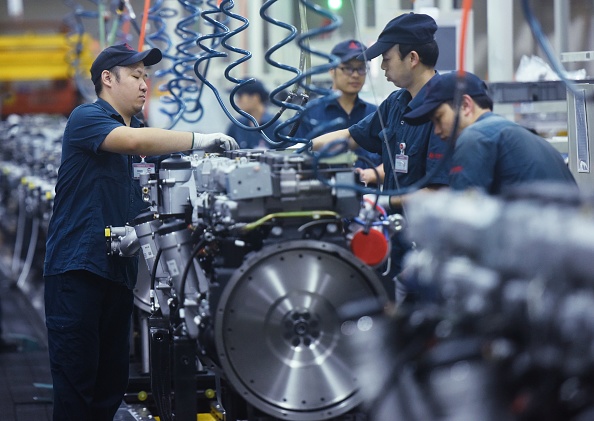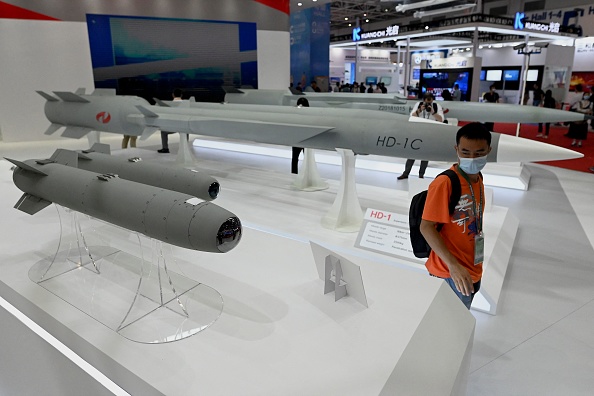
 A Diplomatic Burn
A Diplomatic BurnU.S. President Joe Biden's nominee for ambassador to Beijing Nicholas Burns said on Wednesday that China was aggressive and untrustworthy, warning that China poses "the greatest threat to the security of our country and the democratic world" in the 21st century. Burns, a former senior State Department official and diplomat with decades of experience working on both sides of the aisle, did not mince his words, calling the U.S. approach to China "competitive when it should be, collaborative when it can be, and adversarial when it must be."
In testimony before the U.S. Senate Foreign Relations Committee, Burns said that Americans should "have confidence in our strength" but stressed that China's power should not be overestimated. Burns asserted that the U.S. should help Taiwan fortify itself against the threat of Chinese invasion, and denounced recent Chinese warplane incursions into Taiwan's air defence zone, calling them "especially objectionable."
Only one U.S. Senator asked Burns about areas of cooperation with China, and Burns answered that the two powers should find common ground on climate change, global health and nuclear non-proliferation. But the majority of his remarks condemned China's actions, including its treatment of its Muslim Uyghur minority population and its "unacceptable" trade practices.
Zhu Feng, the director of the Institute of International Studies at Nanjing University, noted that Burns' "tough remarks on China underlined heightened sentiment against China in the U.S. Congress."
At a separate meeting at the World Trade Organization, the U.S. blasted China's trade policy, saying that Beijing has failed to play by the rules and skewed the playing field for over two decades. The U.S. charge d'affaires David Bisbee cited "unfair trade practices" include preferential treatment for state businesses, data restrictions, inadequate enforcement of intellectual property rights and cyber theft.
Read Dong Chinling's "How Relations Can Move Forward", dissecting how U.S.-China relations aren't just about the U.S. and China — their relationship sets global trends.
 Housing on the Rocks
Housing on the RocksChina's third-quarter GDP grew just 4.9%, down from 7.9% growth the previous three-month period, as industrial activity rose less than expected in September, and a debilitating energy crunch, massive shipping disruptions, and an escalating property crisis have taken their toll on the world's second-largest economy.
Beijing, however, has no plans for a big stimulus. Both exports and retail sales have remained strong, which have prevented an economic stall. Economists are still expecting 8% in GDP growth for 2021, which is higher than the government's goal of 6%. Employment is stable and debt as a ratio of GDP has fallen for four consecutive quarters. So while Chinese officials are showing signs of concern, they are unlikely to alter course.
Meanwhile, property sales in China have plunged and developers are defaulting on their debt in a huge housing market slump, which is becoming yet another threat to the economy. Home prices in China have begun falling for the first time in six years, and local governments are trying to stem the losses by offering subsidies for young home buyers and clamping down on "malicious price cuts" on new homes.
However, President Xi Jinping's plan to deflate China's property bubble and curb housing speculation through a nationwide property tax is facing resistance. In what could be one of the most profound changes to the country's real estate policies in a generation, President Xi wants to level the playing field in the distribution of Chinese wealth under the banner of "common prosperity."
Read Wang Yuzhu's "Good Governance for Common Prosperity", breaking down China's common prosperity initiatives.
 Missile Mania
Missile ManiaBeijing has denied accusations that it tested a hypersonic missile in August, saying that the test was a spacecraft experiment. The report stated that the nuclear-capable missile circled the world's circumference traveling roughly five times the speed of sound before it re-entered Earth's atmosphere and ultimately missed its target. China's Ministry of Foreign Affairs spokesperson Zhao Lijian responded to the recent reports, emphasizing that the test was not a missile, but rather a routine spacecraft experiment seeking to verify the reusable technology of spacecraft.
Regardless of the murkiness surrounding claims about the missile, Washington remains concerned with China's expansion of strategic and nuclear weaponry that has come to light over the last few months, with the construction of hundreds of missile silos and reports of new strategic ballistic missile submarines. U.S. Defense Secretary Lloyd Austin stated that the U.S. is closely watching "China's development of armament and advanced capabilities and systems that will only increase tensions in the region."
Russia is also in the process of developing hypersonic weapons and has claimed to have tested a missile successfully. The Kremlin has since defended China's alleged weapons testing, highlighting that Beijing is following similar moves made by the United States.
Prepared by China-US Focus editorial teams in Hong Kong and New York, this weekly newsletter offers you snap shots of latest trends and developments emerging from China every week, while adding a dose of historical perspective.
- 2021-10-15 Energy Crunch
- 2021-10-08 Stoking Tensions
- 2021-10-01 Great Power Coopetition
- 2021-09-24 Sign of Goodwill?
- 2021-09-17 State of Play
- 2021-09-10 The Last Word
- 2021-09-03 Heightened Frustrations
- 2021-08-27 China’s Backyard
- 2021-08-20 Graveyard of Empires
- 2021-08-13 A New Crossroads
- 2021-08-06 Lowering Barriers
- 2021-07-30 A Diplomatic Stalemate
- 2021-07-23 A Climate for Change
- 2021-07-16 The Trade Game
- 2021-07-09 Existential Threats
- 2021-07-01 Centenary Celebrations
- 2021-06-25 Critical Crossroads
- 2021-06-18 Part of the Club
- 2021-06-11 Retaliatory Legislation
- 2021-06-04 "Defanging" Diplomacy